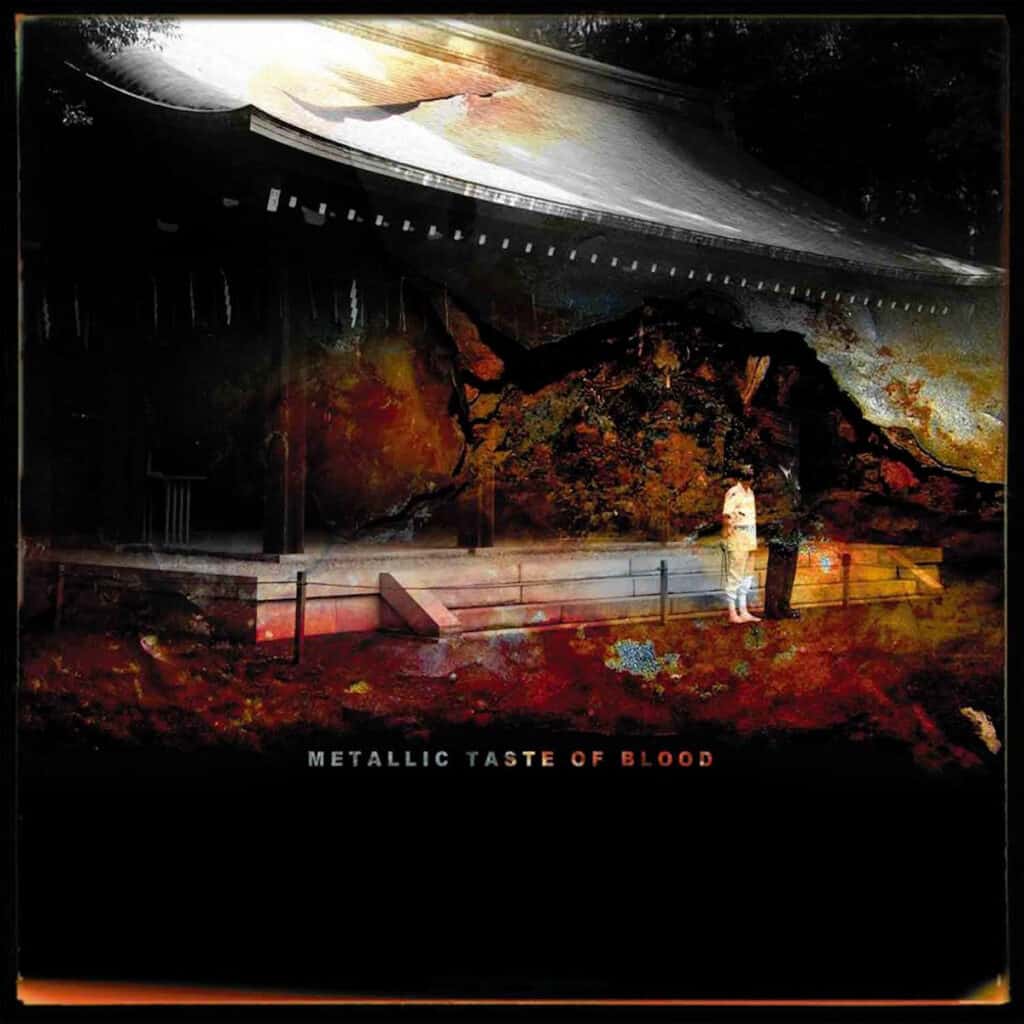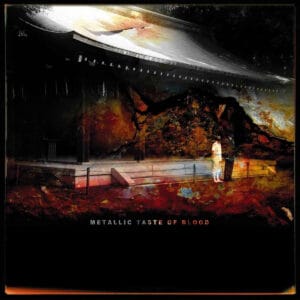Abbiamo intervistato in esclusiva Colin Edwin, bassista dei Porcupine Tree, in occasione dell’uscita dell’album Metallic Taste of Blood nell’ottobre del 2012.
Coma Divine: Trattandosi di un progetto creato da musicisti provenienti da varie parti del pianeta, come è stato il processo di registrazione, siete stati tutti insieme in studio o avete lavorato su Internet?
Colin Edwin: Il tutto è iniziato con Eraldo Bernocchi e me che lavoravamo su alcune strutture di base insieme, che abbiamo fatto insieme in alcune sedute nel suo studio in Toscana. Ovviamente non avevamo lavorato insieme prima, quindi non avevo la minima idea dei suoi metodi di lavoro, o come avremmo potuto iniziare a comporre insieme. Si è rivelato essere un processo molto divertente, stimolante e semplice. Una volta che Eraldo e io abbiamo messo insieme alcune idee, Balazs Pandi ha concretizzato le strutture che avevamo fatto con le sue performance di batteria, registrando a Budapest, e, infine, Jamie ha registrato le sue parti di tastiera presso il proprio studio. Ho rifatto alcune delle parti di basso a casa mia, una volta che abbiamo avuto le tracce di batteria definitive.
Coma Divine: Sappiamo che il nome Metallic Taste Of Blood è un’invenzione di Balazs Pandi e subito è piaciuto a tutti voi, ma chi ha concepito l’idea della band?
Colin Edwin: Inizialmente, Eraldo ed io avevamo deciso di lavorare insieme, ma non c’era alcun piano preciso su come farlo esattamente. Una volta che ci siamo resi conto che avevamo le basi di qualcosa di valido che aveva le potenzialità per essere sviluppato, e che dovevamo coinvolgere altri musicisti per espandere le cose, Eraldo ha pensato a Balazs Pandi come batterista e Balazs, a sua volta, ha suggerito Jamie Saft. Quindi, una volta che Eraldo e abbiamo gettato le basi, abbiamo poi lasciato che gli altri due ci lavorassero, in sostanza. L’idea è cresciuta seguendo il nostro istinto. Per me il materiale musicale del disco ha sua una precisa identità, scaturita dal fatto che tutti siamo stati alla pari nel processo creativo.
Coma Divine: Il vostro è un album tutto strumentale, come pochi al giorno d’oggi, molto in contrasto con tutto ciò che è commerciale: è stata una scelta deliberata o una necessità?
Colin Edwin: Abbiamo discusso dell’opportunità magari di avere un guest vocalist su un brano o due, ma una volta che ho sentito il contributo di Jamie non ho sentito la necessità di avere un cantante. Inevitabilmente un album strumentale è più difficile da vendere, dato che la maggior parte delle persone si relazionano alla voce molto più facilmente che non alla musica da sola, ma credo che ci sia abbastanza sostanza in questo album, e una identità sonora abbastanza forte da rendere il tutto un ascolto coinvolgente anche senza avere un cantante.
Coma Divine: Ascoltando l’album si riscontrano vari generi musicali, dal metal al jazz, dub, prog, trip-hop, elettronica, ambient e così via. Sono questi, come noi crediamo, le influenze del background musicale di ciascuno di voi? Come hai fatto a gestire la coesistenza di questi generi durante la composizione?
Colin Edwin: È abbastanza evidente che noi quattro abbiamo dei background musicali decisamente diversi in quello che facciamo musicalmente, ma certamente non ho avuto alcun preconcetto iniziale, e non credo che neanche gli altri ne avessero. Non avevamo l’obiettivo cosciente di fare un album che suonasse come una cosa specifica, e non abbiamo discusso le cose troppo, né cercato di influenzarci l’un l’altro, dunque il risultato è davvero una manifestazione diretta di ciascuna delle nostre personalità, delle nostre ispirazioni individuali, ed emozioni. Ripensandoci ora, credo che avrebbe potuto andare tutto storto abbastanza facilmente, tuttavia non abbiamo dovuto sforzarci per trovare un terreno comune. Comunque, credo che tutti i generi che elenchi nella tua domanda di cui sopra sono cose che mi piace ascoltare, l’etichettatura è un problema dei giornalisti.
Coma Divine: Che genere di equipaggiamento hai usato per questo album?
Colin Edwin: Ho registrato il basso come faccio di solito, cioè prendo due segnali: uno direttamente DI dal basso e uno attraverso o un amplificatore (uscita DI dal mio EBS Fafner II in questo caso) o dal simulatore di amplificatore come il mio MicroBass II. Fondo i due insieme per avere un’idea di ciò che potrebbe funzionare in un mix, di solito uso la distorsione del segnale amplificato per dare un po’ più di presenza, ma a volte basta lasciare il suono pulito.
Ho usato principalmente uno dei miei Spector Euro 435LX, uno rosso con due linee di basso pick-up che ho preso poco tempo fa. Il mio fretless Wal appare nel brano “Schizopolis”, con corde lisce per un suono “gommoso”, e il Wal non-fretless invece si sente in “Bi-Polar” e “Twitch”Ho usato un EBS D-Phaser e Multichorus per ottenere un po’ di modulazione in alcuni punti, e un Valvedrive EBS e Multidrive e per qualche distorsione. La cosa più effettata a livello di basso è il mio assolo di basso in “Schizopolis”, che Eraldo ha sottoposto a una totale “compressione sonora”.
Su “Transverse” suono alcune frasi nell’introduzione utilizzando un EBow, con un pedale delay (a Digitech TimeBender), è una cosa che io uso molto spesso, funziona davvero bene sul basso. Ho anche contribuito con un po’ di elettronica, soprattutto utilizzando alcuni suoni synth creati con Sculpture (in Logic), in un paio di posti questi sono stati inseriti per mezzo di un filtro dei dati Boss SL20 Slicer e poi rielaborati attraverso un delay plug-in in Logic.
Coma Divine: Quanto c’è di italiano in Metallic Taste Of Blood?
Colin Edwin: Penso che sia un album che suona molto europeo, ma non riesco a quantificare esattamente il motivo.. solo una sensazione.
Coma Divine: Questo ambizioso progetto arriverà a un secondo album? E a delle date dal vivo?
Colin Edwin: L’album è stato ben accolto quindi penso che produrremo ancora un po’ di materiale prima o poi.
Dei concerti sono in discussione in questo momento, la mia sensazione è che la musica funzionerebbe molto bene in un ambiente live, quindi spero davvero che ci riusciamo.
Coma Divine: Come è andato il clinic tour in Svizzera? Si potrebbe fare qualcosa di simile in Italia un giorno?
Colin Edwin: Uno degli aspetti del suonare il basso è che raramente si incontrano altri bassisti, siccome in genere ce ne sono meno in giro, in particolare rispetto ai chitarristi, quindi essere di fronte anche a un piccolo pubblico di persone interessate a tutto ciò che riguarda il basso è una cosa rara e interessante! È stato un esercizio davvero buono per me il dover esporre i miei pensieri in merito al basso e a quello che mi piace fare con esso. Inoltre, ho finalmente avuto modo di vedere un po’ più della Svizzera, il che è stato fantastico. Mi piacerebbe sicuramente poter fare una cosa simile in Italia, forse accadrà..
Coma Divine: Una domanda che non possiamo evitare: quando torneranno in studio i Porcupine Tree?
Colin Edwin: Non c’è nessun calendario a riguardo in questo momento, quindi non lo so.
Coma Divine: Che cosa ti piace di più del nostro paese?
Colin Edwin: Ci sono un sacco cosa da amare in l’Italia: il clima, il cibo, il caffè, il paesaggio, il calore della gente.. non riesco a scegliere una cosa sola!
Coma Divine: Caro Colin, grazie per il tempo che ci hai dedicato e il tuo lavoro che noi apprezziamo molto. Un caro saluto dall’ Italia e speriamo di vedervi presto in alcuni dei vostri spettacoli dal vivo.
Colin Edwin: Grazie ragazzi! Spero che non aspetterete troppo a lungo..



